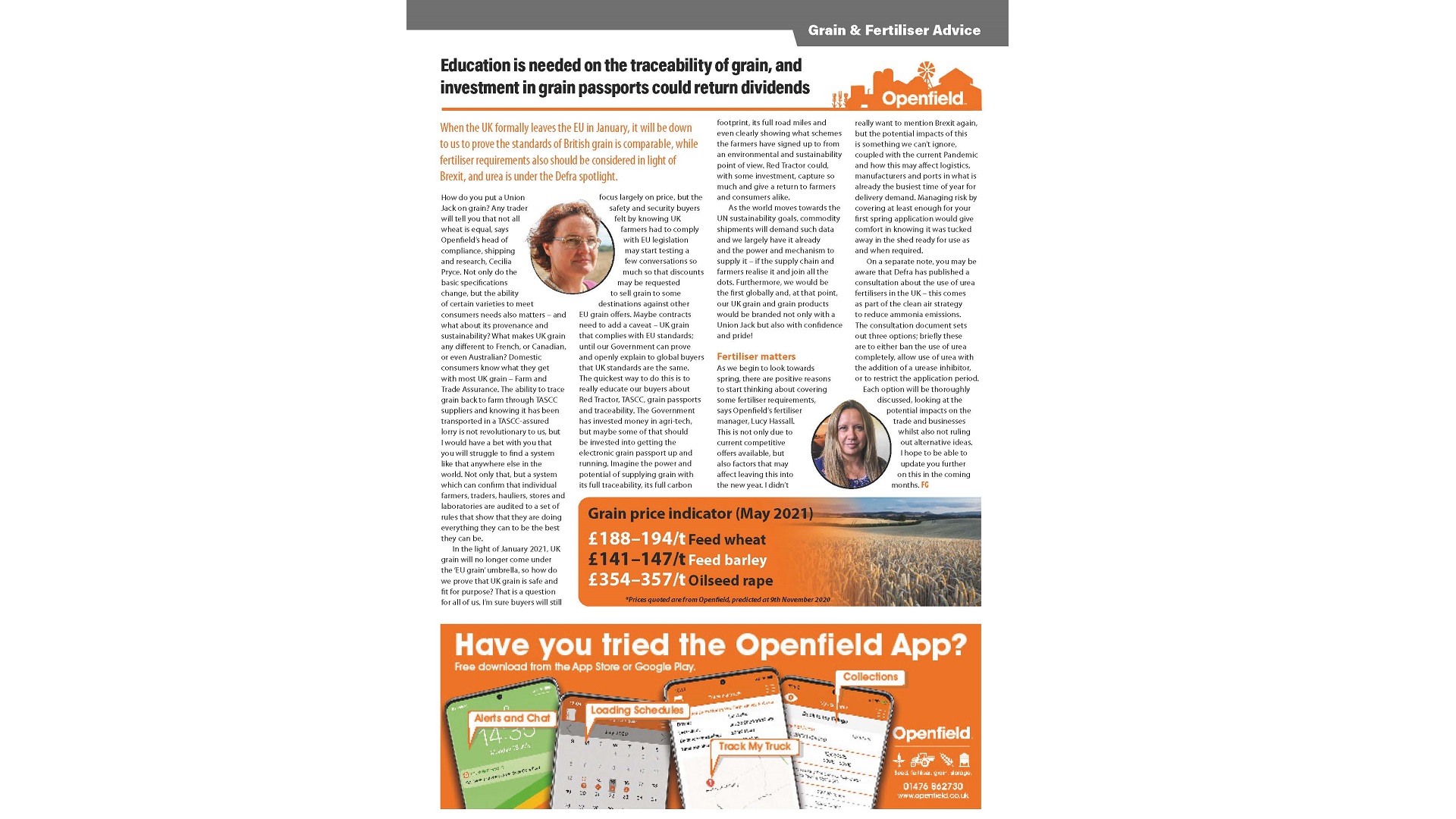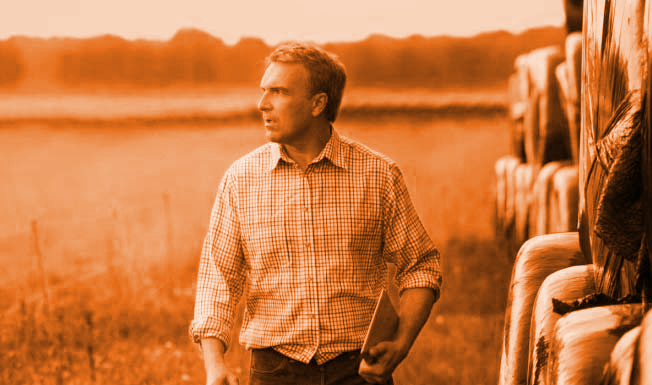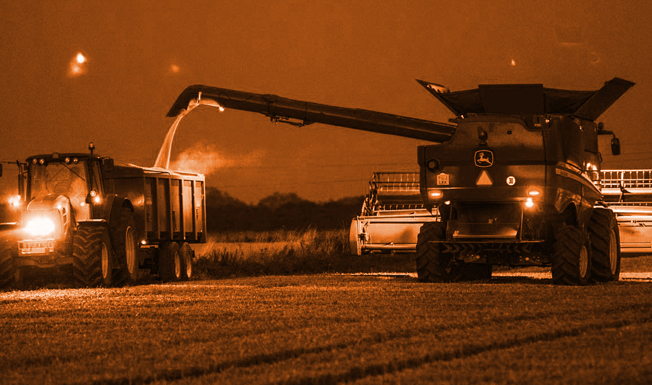Education is needed on the traceability of grain, and investment in grain passports could return dividends
When the UK formally leaves the EU in January, it will be down to us to prove the standards of British grain is comparable, while fertiliser requirements also should be considered in light of Brexit, and urea is under the Defra spotlight.
How do you put a Union Jack on grain? Any trader will tell you that not all wheat is equal. Not only do the basic specifications change, but the ability of certain varieties to meet consumers needs also matters – and what about its provenance and sustainability? What makes UK grain any different to French, or Canadian, or even Australian? Domestic consumers know what they get with most UK grain – Farm and Trade Assurance. The ability to trace grain back to farm through TASCC suppliers and knowing it has been transported in a TASCC-assured lorry is not revolutionary to us, but I would have a bet with you that you will struggle to find a system like that anywhere else in the world. Not only that, but a system which can confirm that individual farmers, traders, hauliers, stores and laboratories are audited to a set of rules that show that they are doing everything they can to be the best they can be.
In the light of January 2021, UK grain will no longer come under the ‘EU grain’ umbrella, so how do we prove that UK grain is safe and fit for purpose? That is a question for all of us. I’m sure buyers will still focus largely on price, but the safety and security buyers felt by knowing UK farmers had to comply with EU legislation may start testing a few conversations so much so that discounts may be requested to sell grain to some destinations against other EU grain offers. Maybe contracts need to add a caveat – UK grain that complies with EU standards; until our Government can prove and openly explain to global buyers that UK standards are the same.
The quickest way to do this is to really educate our buyers about Red Tractor, TASCC, grain passports and traceability. The Government has invested money in agri-tech, but maybe some of that should be invested into getting the electronic grain passport up and running. Imagine the power and potential of supplying grain with its full traceability, its full carbon footprint, its full road miles and even clearly showing what schemes the farmers have signed up to from an environmental and sustainability point of view. Red Tractor could, with some investment, capture so much and give a return to farmers and consumers alike. As the world moves towards the UN sustainability goals, commodity shipments will demand such data and we largely have it already and the power and mechanism to supply it – if the supply chain and farmers realise it and join all the dots. Furthermore, we would be the first globally and, at that point, our UK grain and grain products would be branded not only with a Union Jack but also with confidence and pride!
Fertiliser Matters
As we begin to look towards spring, there are positive reasons to start thinking about covering some fertiliser requirements. This is not only due to current competitive offers available, but also factors that may affect leaving this into the new year. I didn’t eally want to mention Brexit again, but the potential impacts of this is something we can’t ignore, coupled with the current Pandemic and how this may affect logistics, manufacturers and ports in what is already the busiest time of year for delivery demand. Managing risk by covering at least enough for your first spring application would give comfort in knowing it was tucked away in the shed ready for use as and when required. On a separate note, you may be aware that Defra has published a consultation about the use of urea fertilisers in the UK – this comes as part of the clean air strategy to reduce ammonia emissions. The consultation document sets out three options; briefly these are to either ban the use of urea completely, allow use of urea with the addition of a urease inhibitor, or to restrict the application period. Each option will be thoroughly discussed, looking at the potential impacts on the trade and businesses whilst also not ruling out alternative ideas. I hope to be able to update you further on this in the coming months.




